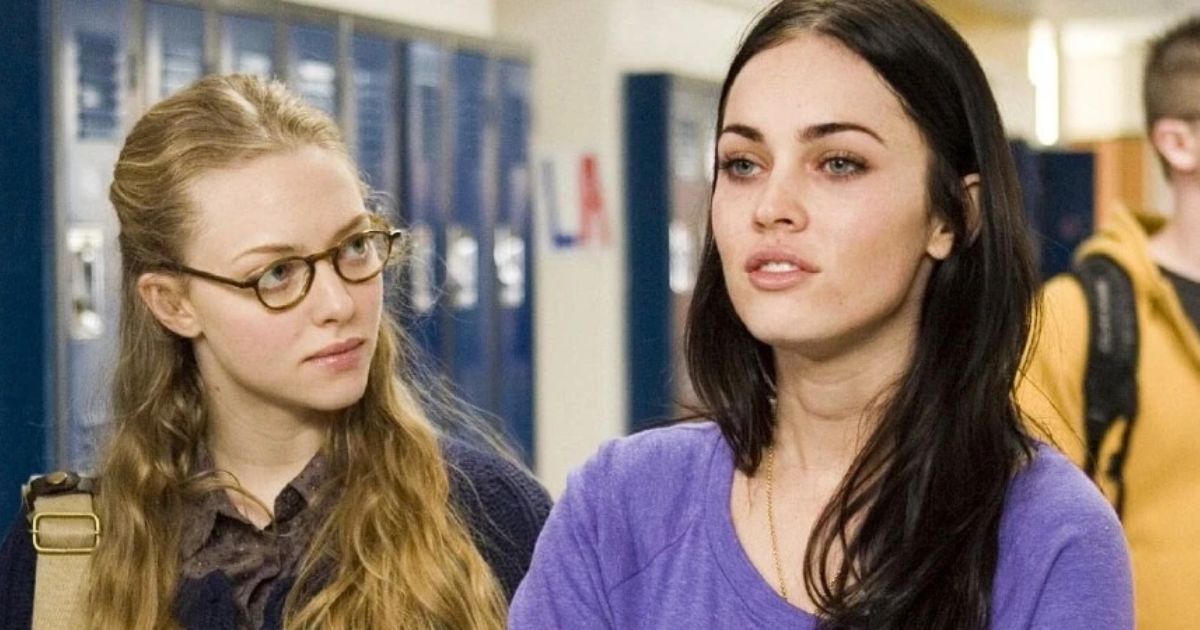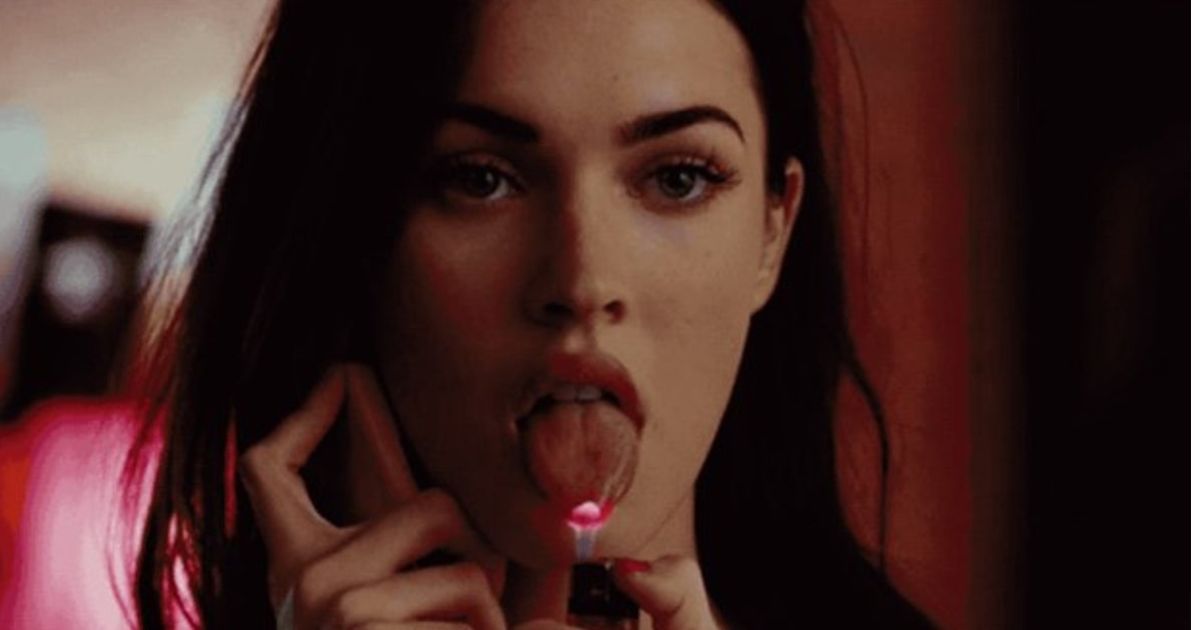A horror comedy written by Diablo Cody, Jennifer’s Body broke ground as an edgy but witty film exploring themes that were not yet prominent conversations in 2009. Megan Fox was cast as the titular femme fatale of Jennifer, with Amanda Seyfried as her dorky best friend turned empowered rival. Megan Fox was arguably an ingenious casting choice, with her real-life career mirroring the objectification and subsequent discarding that Jennifer survives in the film. Fox was at the height of her career until she was fired from the Transformers series after a public feud with director Michael Bay.
The actress was labeled difficult to work with and was essentially blacklisted from working in Hollywood, until the Me Too movement resurrected her case and she rose again into public favor. Amanda Seyfried, on the other hand, has enjoyed a steadily upward climb in her career. She has cemented the power of her acting chops through projects such as The Dropout and Les Miserables after multiple cult classic hits such as Mean Girls and Mamma Mia. Enjoying a great deal of selectivity in career moves, Seyfried nevertheless cites Jennifer’s Body as her favorite film to have worked on. Fox says this as well, with the project clearly holding a special place for her as well. Here is why both of the stars enjoyed working on Jennifer’s Body so much.
What’s it All About?
Jennifer’s Body took the basic elements of a teen classic and added a horrifying twist to it. Jennifer Check (Megan Fox) is the local high school hottie in Devil’s Kettle, a town who’s online claim to fame is a mysterious vortex-like body of water into which items seem to disappear into a void. Despite her popularity, Jennifer stays loyal to her childhood best friend, Anita, affectionately called “Needy” (Amanda Seyfried). They’re an odd pair, with Fox’s Jennifer strutting confidently and scantily dressed opposite Seyfried’s unassuming and quiet Needy. From the beginning there is a strange tension between the two characters, with their interactions wavering between vaguely flirty to subtly backhanded and competitive.
Nevertheless, their dynamic is spun on its head, or rather magnified, when a devastating fire breaks out at the local bar at which the two girls are watching a band called “Low Shoulder” play a questionably random gig. Jennifer is never the same after that night, ultimately revealing that the struggling band members sacrificed her to the devil believing she was a virgin. Since she very much was not, the ritual backfired, with Low Shoulder achieving the fame they craved, but Jennifer also resurrecting into a flesh-eating demon. It is up to Needy to stop her best friend from continuing to feast on the boys of Devil’s Kettle, killing the demonic entity she once held so dear.
The film was, at its release, a decided flop. Both Fox and creator Diablo Cody largely accredit that to the errant marketing of the film as a thriller for the male gaze. With the film’s posters depicting a sexy school girl image of established sex symbol Megan Fox, the project piqued the interests of male audiences expecting a male fantasy to play out on the big screen. What they found instead was a film blatantly written for women and femme individuals, with the overarching message of female empowerment and breaking free of the male gaze clashing with the expectations and desires of this audience. As sexism in Hollywood began to be addressed on a greater scale and in more profound ways, Jennifer’s Body eventually began to gain a steadily growing fan base of women that identified with the tragic circumstances of Jennifer and Needy’s friendship.
Their love, whether fully platonic or repressed in its romantic inclination, was doomed for failure in a world where women are pitted against each other so fiercely that it often becomes second nature. Every issue that Needy and Jennifer struggle with is a direct result of how men have treated them. Jennifer is only a demon because a group of desperate mediocre musicians brutally murdered her. Jennifer’s constant competition with Needy, evidenced in her efforts to always upstage Needy, in terms of dress and physical presentation, is a byproduct of an internalized male gaze and fervent competition to win the favor of the male sex. Even Jennifer’s romantic relationships before her death are problematic, with an adult police officer played by Chris Pratt being one of the teenage girl’s hookups.
Despite her low profile, Needy is still not immune to the damage of the male gaze. While seemingly innocuous, her boyfriend’s disapproval of her relationship to Jennifer highlights the phenomenon of men casting disdain upon women like Jennifer who fulfill all their fantasies of how women should be. Needy’s character is also heavily coded as queer. Not only do other characters point out the flirtatious dynamic between her and Jennifer, but there's a stark and observable contrast between her visible enjoyment in the makeout scene with Jennifer versus the awkward unsexiness of the sex scenes with her boyfriend. Both characters are primed to stand together and break free of societal expectations and limitations, and yet, they don’t. Rather than fighting the greater issue at hand, they make each other the enemy. In the end, it seems that Seyfried’s character is starting to get it, though. After all that time in the psych ward and plenty of time to mull over her personal history, the film ends with her violently raining down vengeance upon the men of Low Shoulder.
What the Leading Ladies Have to Say
Megan Fox even blamed herself for the movie’s box office failure. At this time, the actress’ public persona was already tarnished by her feud with Michael Bay. Regardless, Fox continued to defend the film. For Fox, the character held a special place in her heart as it mirrored her real struggles:
"One of the things was when I was doing that sacrifice scene, there are of course other things that I can pull from my childhood and past, but for me, that scene represented my relationship with the movie studios at the time and the studio executives and directors and just Hollywood in general, because on almost a daily basis, I felt like I was being sacrificed for their gain with almost no concern for my physical well-being. F**k your mental or emotional well-being. That never is a question when you’re a woman in Hollywood. Whatever they need to do to me or put me through, they were going to do as long as it got them that they needed. So in that moment I think it was a very visceral, very powerful, almost cathartic experience, because I was able to let out everything that I was trying to keep in and not be vulnerable and play tough and fight it. I could just surrender to it and cry and wilt, and it was okay."
Seyfried has likewise praised the film. She emphatically expressed her love of the film with Variety magazine:
“It was a f**king really bada** story about best friends that was hilarious and dark and smart. It was unique! Sorry... but I have not ever read another script or seen another movie that feels like Jennifer’s Body. It was art”
Both actresses are now enjoying successful careers despite the initial disaster of Jennifer’s Body’s release. Amanda Seyfried has earned vast critical acclaim for her role as Elizabeth Holmes in The Dropout. Megan Fox is likewise pursuing various projects, with the actress once again dabbling into the supernatural with her upcoming role in Johnny and Clyde.

